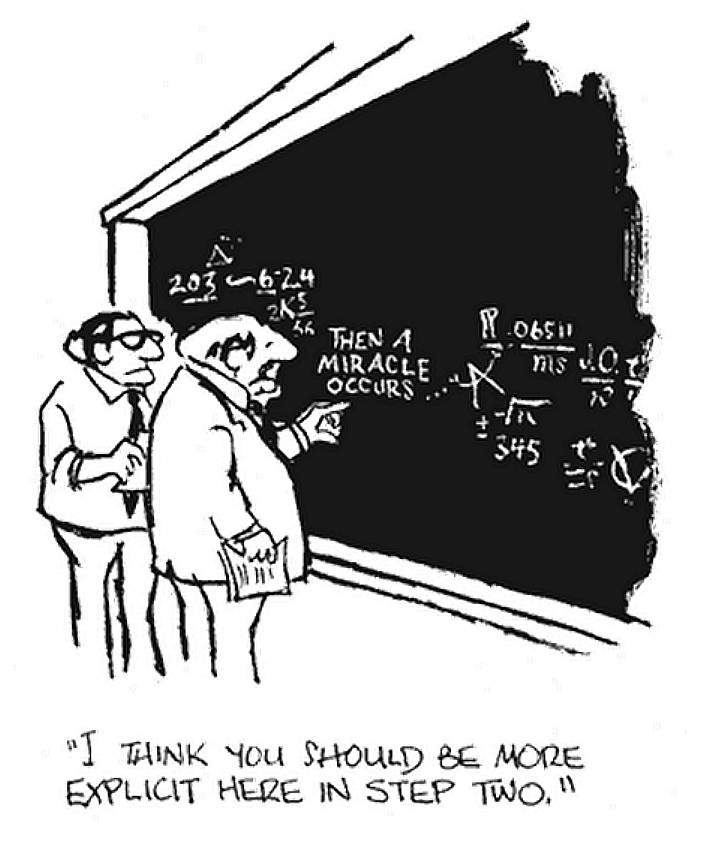source Wall Street Journal
In the Beginning There Was an Atom
With respect to the big-bang theory, science and faith are not at odds.
Amir D. Aczel
May 8, 2014 7:02 p.m. ET
According to a recent Associated Press poll a majority of Americans—51%—do not believe the universe began with the "big bang." The skepticism of half the country may seem startling, given how essential the big-bang theory is to modern cosmology, but there is a good reason for it. The big bang is at first hard to swallow. I am a physics writer, and yet I remember how perplexed I was many years ago when I heard MIT cosmologist Alan Guth describe the universe expanding within a fraction of a second from the size of an atom to "as big as a marble." My initial thought was: How could he possibly know the size of the entire universe when it was less than a second old? Believing in the big bang seemed to require a leap of faith.
And if you feel uncomfortable with big-bang cosmology, you're in excellent company: The greatest physicist of the 20th century, Albert Einstein, stubbornly refused to believe in it. Ironically, it was a Catholic priest who first came up with the big-bang idea in 1927. The Belgian priest Georges Lemaître, who was also an astronomer and physicist, theoretically deduced the expansion of the universe and proposed that it was launched from a "primeval atom"—the process later known as the big bang.
At the time of Lemaître's prescient idea, not only Einstein but other physicists and astronomers believed that the universe was static, with no beginning or end. Lemaître did not buy this supposition. He believed in the story of Genesis, which outlines the birth of the universe, and he searched for a way to prove it scientifically. He presented his complicated mathematical results on the beginning of the universe—based on Einstein's own general theory of relativity—in a 1931 meeting in London of the British Science Association that was dedicated to the relationship between science and spirituality.
Dr. Edwin Hubble examines the photographic plate on which a super nova was found, June 1936. Associated Press
This was after Edwin Hubble's astronomical observations of 1929 had proved that Lemaître was right about the expansion of the universe, and as the news about Hubble's discovery spread around the world, Einstein and many other scientists eventually came to accept the big-bang theory.
On March 17 of this year, in a dramatic news conference held at the Harvard-Smithsonian Center for Astrophysics, the Background Imaging of Cosmic Extragalactic Polarization (Bicep) research group of astronomers presented their discovery of gravitational waves, which confirmed the existence of this major theoretical phenomenon associated with Einstein's general relativity, thus providing overwhelming evidence for the big-bang theory. It also strongly supported cosmic inflation, a mechanism by which the early universe expanded from the size of an atom to that of a marble and beyond—just as predicted by Alan Guth three decades ago.
And so the big-bang theory is verified not only by the Bicep evidence, but also from decades of data on the microwave background radiation in space ("embers of the big bang") as well as high-energy particle collisions from the Large Hadron Collider (a tiny-scale simulation of the big bang). It also fundamentally does not conflict with scripture. So why do so many deny it?
The culprits might be "scientific atheists," a small but vocal group of thinkers who employ science to claim that there is no God. Some argue that the universe came into existence all on its own. In particular, physicist Lawrence M. Krauss's 2012 book "A Universe from Nothing" insists that the big bang occurred within a complete emptiness, and thus there is no need for a "God." But the key assumption of Mr. Krauss's conjecture is flawed and at odds with modern cosmology. The big bang did not occur in "nothing." It had to be spawned in some kind of pre-existent medium, known by physicists as "quantum foam," though we don't know exactly what it is.
Despite the damage scientific atheists are doing to public opinion, the truth is that—at least with respect to big-bang cosmology—science and faith are not at odds. For it was the story in Genesis that inspired the big bang's founder to discover how the universe came to be. And it was Genesis that provided the stimulus for the first mathematical calculations that led to the "primeval atom." The 51% of Americans who deny the big bang—if they do so because they think the theory conflicts with faith—should come to trust our science.
Mr. Aczel is the author of "Why Science Does Not Disprove God" ( William Morrow, 2014). 
